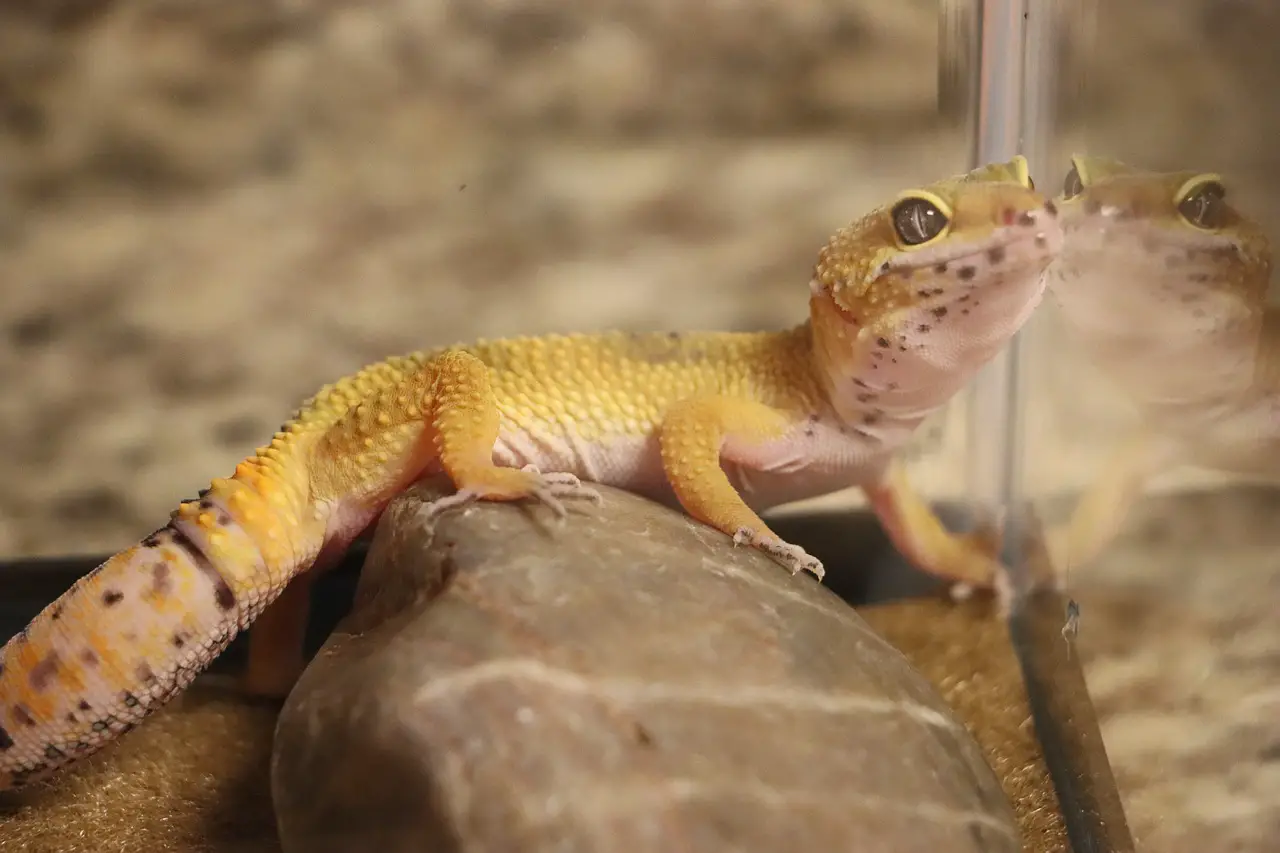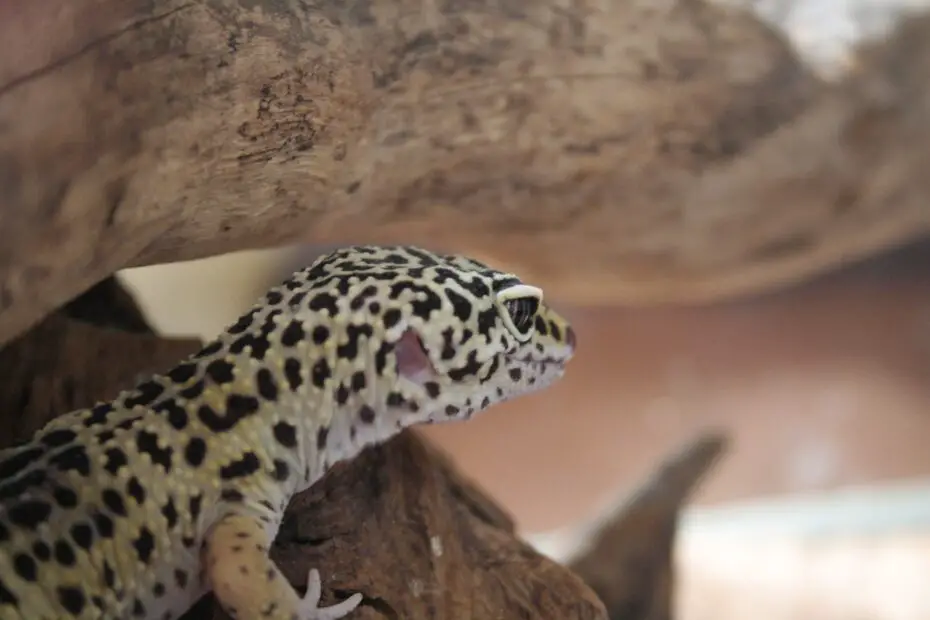Leopard geckos (Eublepharis macularius) are popular reptile pets known for their unique appearance and gentle demeanor. As a leopard gecko owner, you may have observed a perplexing behavior – your gecko attacking the glass walls of its enclosure.
Why Is My Leopard Gecko Attacking The Glass? In this article, we will explore the reasons behind this behavior and provide insights into how you can address and prevent it.
You may also want to know the best way of feeding your leopard gecko.
Understanding Leopard Gecko Behavior
To comprehend the reasons behind glass attacking, it’s crucial to have a general understanding of leopard gecko behavior. Knowing their natural instincts and behaviors will help provide context for the glass-attacking tendencies.
Why Is My Leopard Gecko Attacking The Glass?
There are several potential reasons why your leopard gecko might exhibit glass attacking behavior. Each reason is unique and may require different approaches to resolve.
Territorial Behavior
Leopard geckos can be territorial creatures, especially during certain times, such as breeding seasons. Glass attacking may be a display of dominance or territorial defense against what they perceive as a rival gecko.
Reflection Misinterpretation
Geckos have been known to mistake their own reflection for another gecko. This misinterpretation can trigger aggressive behavior as they attempt to interact with what they believe is a rival.

Temperature and Humidity
Inadequate temperature and humidity levels within the enclosure can lead to stress and discomfort for leopard geckos. They may resort to glass attacking as a means of trying to escape from the unsuitable environment.
Inadequate Enclosure Setup
A poorly designed enclosure lacking sufficient hiding spots and enrichments can contribute to stress and boredom in leopard geckos, leading to glass attacking as a form of frustration.
Stress and Agitation
Any changes in the gecko’s environment or handling that cause stress can result in glass attacking. They may feel threatened and lash out at the perceived threat.
Health Issues
Underlying health problems or pain can manifest in behavioral changes, including glass attacking. It’s essential to rule out any medical issues if the behavior is persistent.
Handling and Interaction
Improper handling techniques or excessive interaction with the gecko can cause stress and anxiety, prompting glass attacking as a defensive response.
Tips to Minimize Glass Attacking
Addressing glass attacking requires a multi-faceted approach, considering both the physical and psychological well-being of your leopard gecko.
Providing Enrichment and Hides
Creating a stimulating and enriching environment with various hiding spots and climbing opportunities can reduce stress and prevent boredom.
Ensuring a Proper Enclosure
A well-designed enclosure with appropriate temperature gradients and humidity levels will promote a sense of security and contentment for your gecko.
Consistent Care and Monitoring
Regularly monitor your gecko’s behavior and health. Address any changes promptly and provide consistent care to minimize stressors.
Conclusion
Why Is My Leopard Gecko Attacking The Glass? Glass attacking behavior in leopard geckos can be a result of various factors, including territorial instincts, reflection misinterpretation, environmental conditions, stress, or health issues. As responsible owners, it’s essential to understand and address these factors to ensure the well-being and happiness of our gecko companions.
FAQs
1. Is glass attacking behavior normal for leopard geckos?
Occasional glass attacking may occur due to various factors, but persistent or aggressive glass attacking could indicate underlying issues that need attention.
2. How can I prevent glass attacking in my leopard gecko?
Provide a well-designed enclosure with hiding spots and enrichments, maintain appropriate temperature and humidity levels, and minimize stressors.
3. Will adding more geckos to the enclosure stop glass attacking?
Introducing more geckos may not necessarily stop glass attacking, as it could potentially lead to more territorial conflicts.
4. Should I cover the enclosure to prevent glass attacking?
Covering the sides or back of the enclosure to reduce reflections may help if reflection misinterpretation is a contributing factor.
5. Should I seek veterinary help if my gecko’s glass attacking is persistent?
Yes, if the glass attacking behavior persists despite addressing environmental factors and providing enrichment, it’s essential to consult a veterinarian to rule out any underlying health issues.
